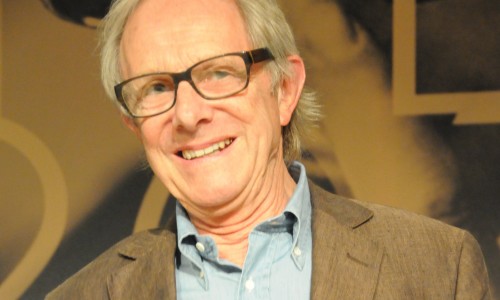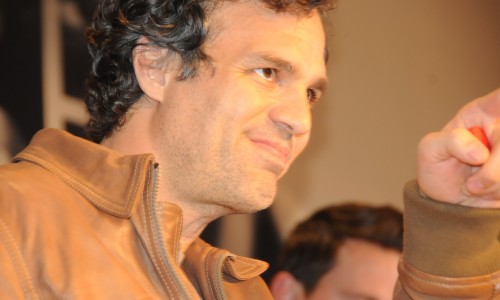Some people call it the film industry, others refer to it as the entertainment business but these terms could be said better to describe the film market at Cannes, than the festival. The likes of Sex Tape, The Expendables 3, and the latest Hunger Games and Transformers films are certain to do a lot of business and are likely to entertain, but will they stay with audiences once they’ve left the cinema? Will they make viewers think? Do they have anything to say?
It’s the official selections in the main festival and its sidebars where the films are more likely to have a message, intentionally or otherwise. Some are obvious, while for others, you have to look a little deeper.
In the main competition, David Cronenberg’s Maps to the Stars is clearly critical of Hollywood, while Timbuktu warns of the dangers posed by fundamentalist Islam and the Dardenne brothers’ Two Days, One Night considers the way big companies use divide-and-rule tactics to keep the working classes in their place.

Jimmy’s Hall wears its heart on its sleeve, but Loach isn’t convinced that films can actually make a difference. “Film adds to the public discourse,” he acknowledges. “It adds to the general noise of the discussion, but if film did have an influence, it would be very negative, endorsing America as the land of the free.” He says he’s keen to make his work “challenging and subversive.” “It’s down to the people who see the film,” he enthuses. “If they take it outside the cinema, there’s a chance.”This is a theme that, perhaps unsurprisingly, appears in Ken Loach’s latest competition entry, Jimmy’s Hall, in which the Catholic church, police and politicians in 1930s Ireland try to stop the eponymous community leader gathering locals together in one place, to enjoy poetry, art, dancing and other activities seen as a threat to the authorities.
Loach bemoans the fact that film critics don’t like seeing politically conscious working class people who can speak with clarity about their experiences. “They like victims or criminals but they don’t like working people who know what to think. They’re characters you don’t often see in films and it’s been a running theme for me to give them prominence.”
At one point in Jimmy’s Hall, an official remarks that in Belfast, protestants and catholics have united and wonders, “I don’t know if that’s good news or bad news.” “The idea of the two sides of the working class getting together spreads horror,” Loach tells me in Cannes. “The Left marches under the banner of ‘unity is strength’ but is sectarian. The threat from the right is so intense that we have to have unity on the left.”
“We’re all in the grip of the neo-liberal agenda,” Loach continues. “Jimmy’s fight now would be against that. The enemy has transmuted into the big corporations that control us beyond democracy.”

And it’s a big corporation that’s at the heart of Bennett Miller’s 1980s-set real-life story Foxcatcher, in which the multi-millionaire John du Pont, from the family of industrialists, finds himself with more money and time than he knows what to do with and tries – like a Russian oligarch or Arab prince – to buy sporting success. Du Pont paid American Olympic gold-medal-winning wrestlers, played by Channing Tatum and Mark Ruffalo, to set up a training centre on his farm.
The film is about what happens when everything is for sale, notes Ruffalo. “What happens to people in a system where everything has a price?” he wonders. But he’s insistent that the film is not preaching or trying to make a point. “The great thing about making movies is you can have that kind of discussion without it being political or polemic,” he argues. “It’s a reflection of who we are.”And it’s a big corporation that’s at the heart of Bennett Miller’s 1980s-set real-life story Foxcatcher, in which the multi-millionaire John du Pont, from the family of industrialists, finds himself with more money and time than he knows what to do with and tries – like a Russian oligarch or Arab prince – to buy sporting success. Du Pont paid American Olympic gold-medal-winning wrestlers, played by Channing Tatum and Mark Ruffalo, to set up a training centre on his farm.
Miller concurs. “If you don’t take a side, you can look past the things you’re confronted with.”
So the likes of Ruffalo and Miller believe it’s possible to make a thought-provoking film, without pushing a message down people’s throats. And Loach, who complains of critics accusing him of “telling us what to think,” chose to couch his message, this time, in a more accessible story than some of his more hard-hitting work.
One Cannes film with a particularly clear message is Pride, the British production that closed the Directors’ Fortnight collection. It tackles, as its title suggests, prejudice against gay communities, as it tells the story of a small group of gay campaigners from London raising money for striking south Wales miners in 1984 and then finding that many of the destitute strikers don’t want their money.
But using the charming story-telling techniques previously seen in the Full Monty and Billy Elliot, Pride director Matthew Warchus – with cast including Dominic West – has produced a film that despite its obvious message is ostensibly a feel-good comedy. It shows, as clearly as any other at Cannes this year, that having a message doesn’t mean a film can’t also be described as part of the entertainment business.
